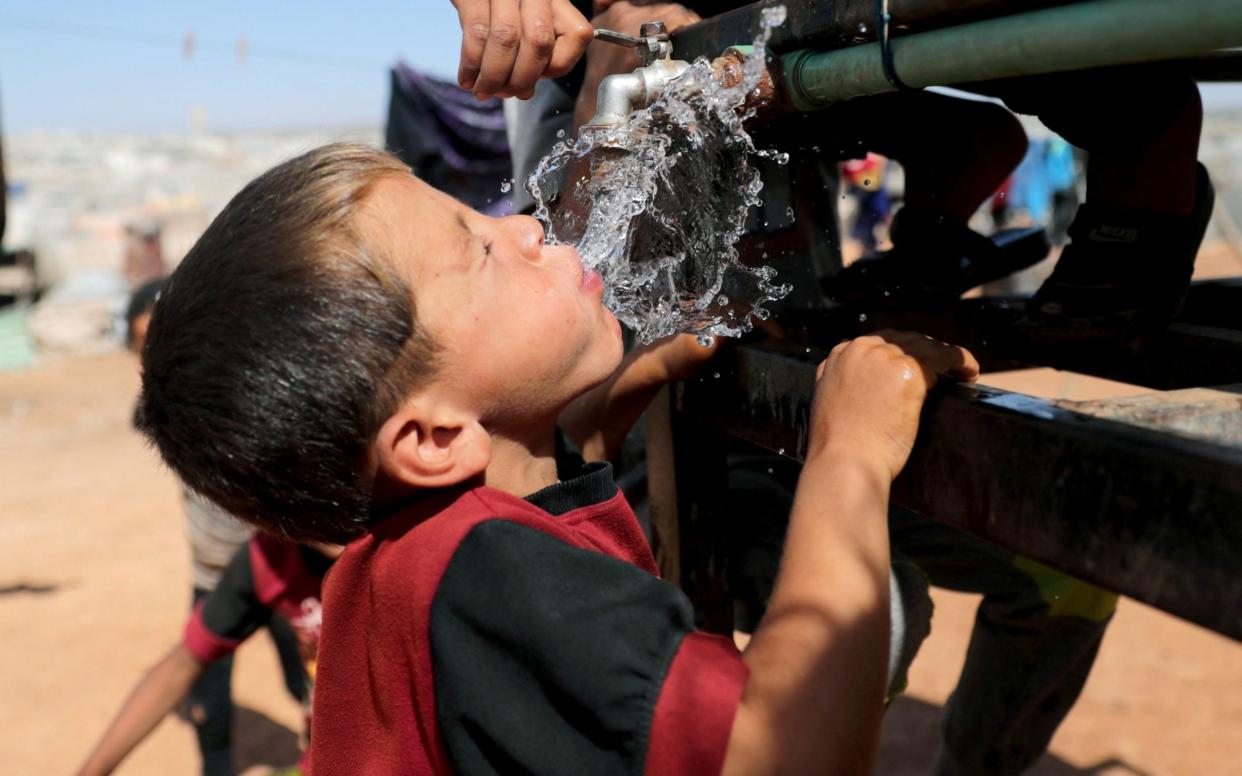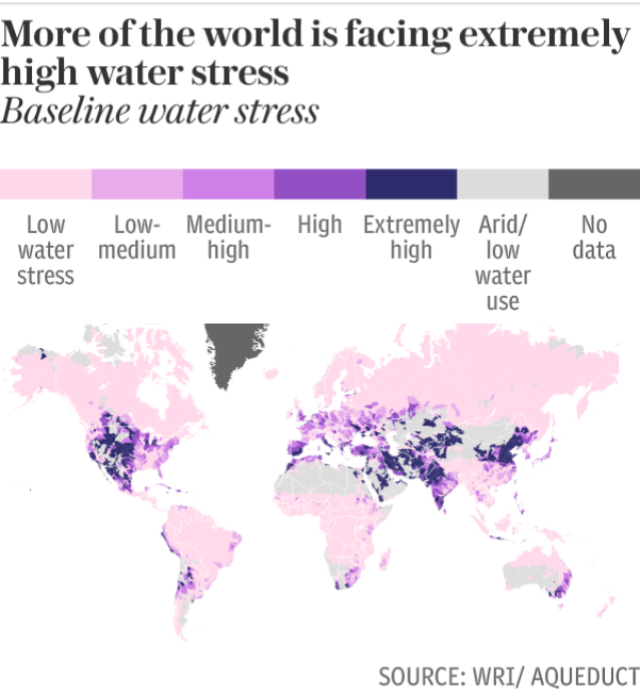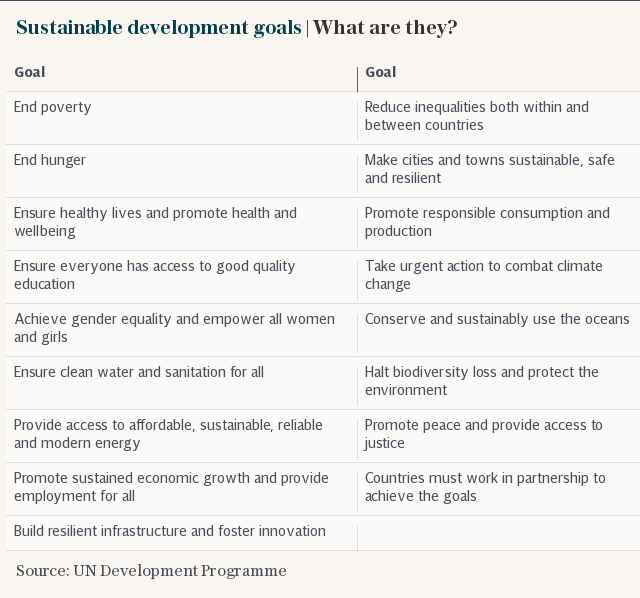Covid-19 dries up hopes of ending global water poverty by 2030, campaigners warn

The United Nations’ sustainable development goal (SDG) of delivering safe water and sanitation for all by 2030 is worryingly off track, campaigners have warned.
Already more than 2.4 billion people do not have access to safe, readily available water at home, while a further 4.5 billion lack safely managed sanitation.
And the Covid-19 pandemic is only increasing water insecurity and stalling efforts to improve global hygiene standards just when access to safe water is needed most, they say.
“The 2020 Covid outbreak, along with recent cholera outbreaks in Yemen, Somalia, and the Ebola outbreaks that we witnessed in different countries in Africa are all painful reminders of the absolute importance of sanitation and hygiene,” James Wicken, Head of Global Policy Advocacy and Innovation at the global Water Supply and Sanitation Collaborative Council, told a panel of experts and journalists this week.
“At the moment, the SDG targets on sanitation will only be realised in the next century,” he warned.
Safely managed water, sanitation, and hygiene (Wash) services go hand in hand with preventing disease outbreaks.
More than 297,000 children under five years die due to diarrhoea linked to inadequate Wash facilities every year. Poor sanitation and contaminated water are also linked to transmission of diseases such as cholera, dysentery, hepatitis A, and typhoid.
However, the pandemic has stopped many community outreach programmes and diverted much needed resources and investment in utilities, especially in countries already struggling.

In El Salvador water was already a scarce resource, even before Covid-19 struck.
According to one study, the densely populated Central American country is set to run out of water within 80 years unless radical action is taken to improve the way it manages its dwindling water supplies.
Years of droughts, a leaky water system, the climate crisis, pollution and unchecked commercial exploitation have all exacerbated the problem.
Now, thanks to a tropical storm on May 31, killing 27 people and collapsing water pipes, El Salvador is facing a battle of two fronts as the Covid-19 crisis diverts attention from citizen’s calls for free and easy access to running water in their homes, say human right campaigners.
“Covid-19 has had a detrimental effect on rights to water, food, health and life. This pandemic is a stark reminder of the importance of human rights to water and sanitation because handwashing is the first line of defence,” said Dr Maria del Carmen Marques Ruiz, a policy coordinator on environment and water at the European Action Service.
More than three billion people don't have clean water and soap at home to wash their hands and bringing Wash services to the most vulnerable communities during the pandemic is no easy task.

Already 94 million still live without a source of clean water and millions more lack access to toilet facilities in India.
While in countries such as Zambia, having enough water to regularly wash your hands is a struggle for the 100,000 people living in the Chongwe District, who often have to join long queues at the communal water points just to fulfill their daily needs.
But this problem isn’t just limited to developing countries, says Al-Hassan Adam, International coordinator at End Water Poverty.
“Right down from Detroit there are people struggling to get connected to water, to Canada where you have first nation people struggling for water access,” he said. “If you take it back home, here in the UK, a lot of homeless people and travellers are struggling because they rely on access to public toilets and water stations which were closed during lockdown.”
The UN SGC on water and sanitation aims to provide universal and equitable access to safe and affordable drinking water for all no later than 2030.
Yet with just a decade to go and Covid-19 only complicating the issue, these basic human rights are not being met, he says.
While there are countries that have past directives to ensure the right to water is not disrupted during the pandemic, there’s often a catch.
“We’ve seen in Ghana where they have declared three months free water for people so people can have free water during the epidemic. And Argentina, Peru, Spain and Zambia are all countries that have issued directives not to disconnect,” said Mr Adams
But it is not enough, he warns: “Not disconnecting people, that is good, but these countries are not providing the cushion for people to pay their bills after Covid.”

Soon global lockdowns and a lack of universal income support to tide people over will only drive the number of households without access to water up, says Mr Adams.
“A lot of poor people rely on petty trading on the street, with lockdowns that can’t happen,” he said. “In the UK, we have the furlough scheme. In the developing countries there was nothing like that.
“So these people are just left to their own devices. Their water bills are going to go up and they are not going to be able to pay for those bills and they will be disconnected.”
Despite decades of campaigning, under investment in the global water supply systems has done little to relieve inequalities of access.
Now with the added burden of the pandemic pushing the world into recession, there’s a fear that, as more customers are unable to pay their bills, utilities companies may collapse, further exacerbating water shortages, Mr Adams says.
“Most of the countries, what they are doing right now are putting money into health or employment, but nothing in water,” he says. “But every day we are being told, wash your hands, wash your hands, water is the first line of defence. Consumption is increasing but so are debts.”
“Right now society is not thinking about the most marginalised and how they get access to water and sanitation. When the later economic crisis sets in, then god help us with whatever is going to happen in that sector,” he says.
Protect yourself and your family by learning more about Global Health Security

 Yahoo News
Yahoo News 
